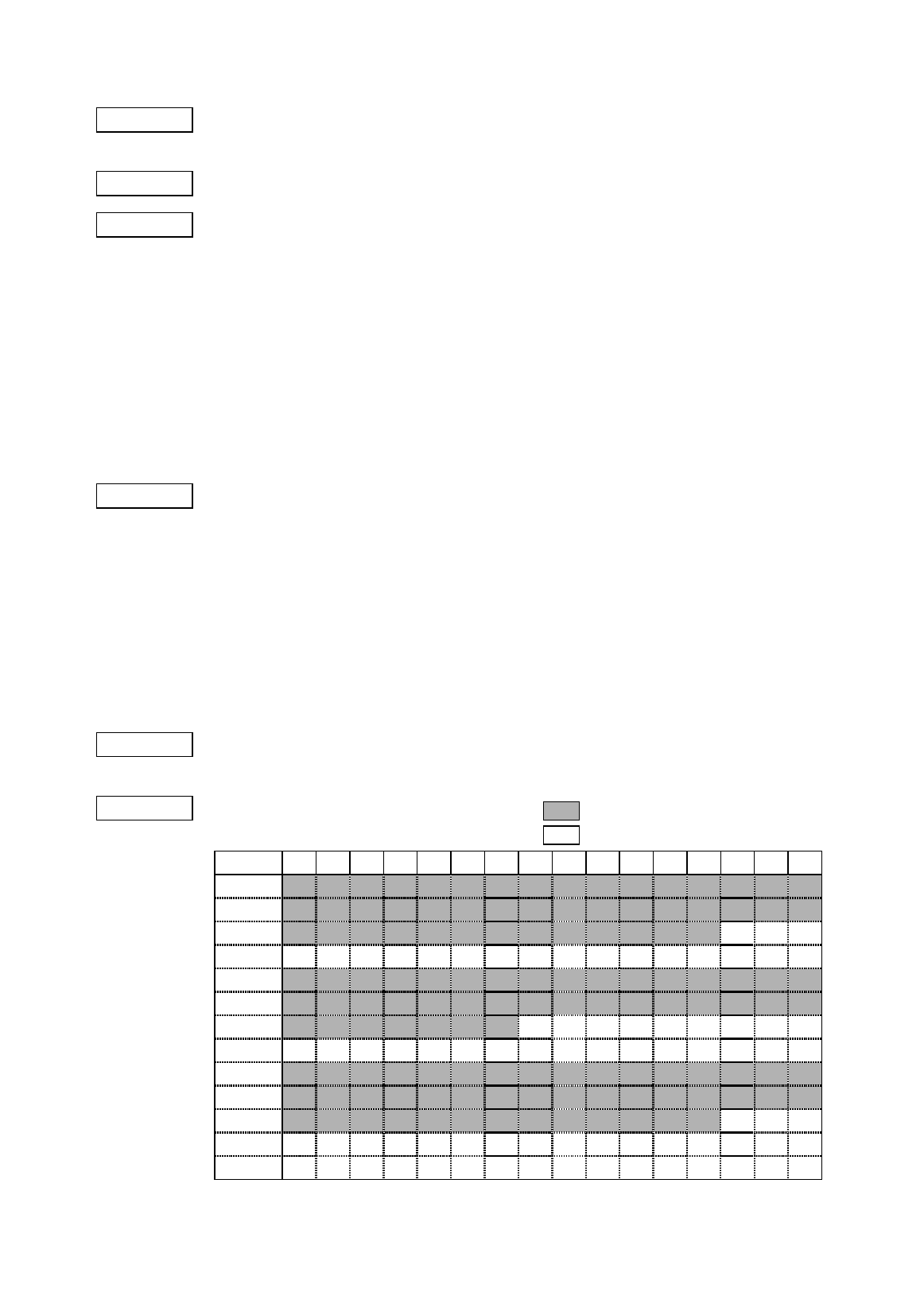
- 134 -
6.3.19 2-BYTE WRITABLE CHARACTER CODE RANGE COMMAND [ESC] XE
Function Sets the code range when a 2-byte writable character code is stored in flash ROM on
the CPU board or the flash memory board.
Format [ESC] XE;(Sj, cc,)a
1
a
1
a
1
a
1
, b
1
b
1
b
1
b
1
, a
2
a
2
a
2
a
2
, b
2
b
2
b
2
b
2
---, a
n
a
n
a
n
a
n
, b
n
b
n
b
n
b
n
[LF] [NUL]
Term Sj, cc,: Drive and Writable character set (Omissible, If omitted, flash ROM on the CPU
board and writable character set “51” are selected.)
0, 51: Flash ROM on the CPU board
Writable character code 51
1,51 to 55: Flash ROM on the memory board
Writable character code 51 to 55
aaaa: First character code for each range
2020 to FFFF (Indicates the hex. data in ASCII code.)
bbbb: No. of characters for each range
0001 to 4000 (Indicates the hex. data in ASCII code.)
Explanation (1) For a 2-byte character code such as Kanji, the character code range may be
divided into two or more. The control information area for the unnecessary code
can be deleted by designating the character code range, and the capacity of flash
memory is not wasted.
(2) The total number of characters for each range must not exceed 0x4000 (16384
characters).
(3) Up to 2700 can be designated for the range.
(4) A character code which is not appropriate for the setting for this command cannot
be stored.
Refer to • Memory Card Format Command ([ESC] J1)
• Bit Map Writable Character Command ([ESC] XD)
Example In the case that Shift JIS 8140H to 83DFH:
0 1 2 3 4 5 6 7 8 9 A B C D E F
8140
:
81F0
:
8240
:
82F0
:
8340
:
83D0
[ESC] XE; 8140, 00BD, 8240, 00B7, 8340, 00BD [LF] [NUL]
Character data is present.
Character data is not present.


















